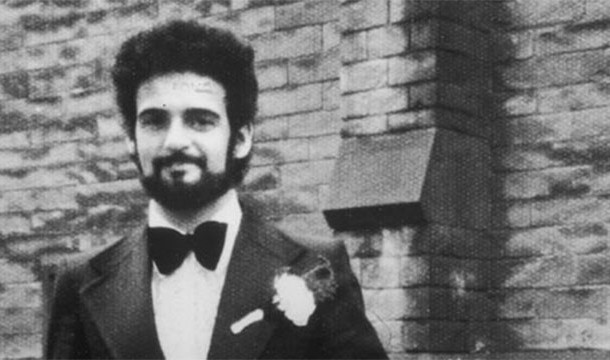Peter Sutcliffe – Broadmoor

Peter Sutcliffe was a British serial killer known as the “Yorkshire Ripper”, responsible for a series of murders and attacks in northern England during the mid-to-late 1970s and early 1980s.
Key Facts
- Confirmed responsible for the murders of 13 women between 1975 and 1980.
- Widely referred to by the media as the “Yorkshire Ripper.”
- Arrested in January 1981 after being stopped for driving with false number plates; subsequent questioning led to his confession.
- Convicted of murder in 1981 after a jury rejected his plea of diminished responsibility.
- Sentenced to life imprisonment with a recommendation that he never be released.
- Died in November 2020 while serving his sentence in custody.
- Also linked to and convicted of multiple attempted murders and assaults on women.
- Attacks typically involved blunt-force trauma and stabbing, carried out across West Yorkshire and surrounding areas.
- Crimes created widespread public fear and prompted intensive police investigations during the late 1970s.
- Background: born in West Yorkshire in 1946 and employed in manual and driving roles before his arrest.
Crimes and Victims
Sutcliffe’s crimes comprised a series of violent attacks on women across West Yorkshire and nearby areas from the mid-1970s through 1980. The confirmed victims were predominantly adult women, and several additional attacks were classified as attempted murders.
The assaults often involved blunt-force blows and knife wounds, and they followed a pattern that linked many incidents to a single perpetrator. The scale and geographical spread of the attacks caused sustained alarm in affected communities.
Capture and Trial
Police arrested Sutcliffe in January 1981 after he was stopped for driving with false number plates; he was questioned about the murders and later confessed to multiple attacks. The arrest followed a prolonged investigative effort that had involved numerous lines of inquiry and public appeals.
At trial, Sutcliffe pleaded not guilty to murder on the grounds of diminished responsibility, claiming mental illness, but the jury found him legally responsible and convicted him on multiple counts. He received a life sentence with a recommendation that he remain in custody for life.
Psychology and Motives
Assessments and commentary on Sutcliffe’s motives have varied, with some experts pointing to deep-seated hostility toward women and sexual sadism, while others emphasized psychiatric elements he and his representatives cited. At trial, mental health defenses were presented but ultimately not accepted as absolving legal responsibility.
Subsequent psychiatric reviews and reporting debated whether his actions reflected an organized predatory pattern, mental disorder, or a combination of factors. The precise psychological drivers behind his crimes have been the subject of ongoing analysis in criminology and forensic psychiatry.
Background / Early Life
Peter Sutcliffe was born in 1946 in West Yorkshire and lived and worked in the region where most of the attacks occurred. Before his arrest he held various manual and driving occupations and maintained a family life that later featured in investigations and media coverage.
Details of his upbringing and adult life were examined during and after his trial to understand any contributing influences on his behavior. Investigators and journalists looked at employment history, personal relationships, and prior incidents as part of building a broader profile.
Legacy and Media Coverage
The case had a lasting impact on policing practices, public perceptions of safety, and debate about media coverage of violent crime in Britain. Criticism of investigative decisions and information-sharing among forces led to reviews of procedures and public inquiries in the years that followed.
Media attention was intense from the first reports through the trial and beyond, spawning books, documentaries, and sustained journalistic analysis. Victim advocacy groups and campaigners have used the case to press for reforms in police response, victim support, and how serial offences are investigated and reported.










